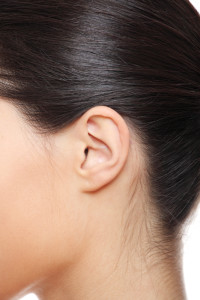 Tinnitus, or ear ringing, is a perceived sound in the head or the ears. Tinnitus is most commonly related to hearing loss. However, pulsatile (pulsating) tinnitus or tinnitus with dizziness or other associated conditions may require further evaluation. Many pharmaceuticals may cause or exacerbate tinnitus. Western Medicine and Traditional Chinese Medicine (TCM) both note that tinnitus is frequently associated with TMJ disorders and depression.
Tinnitus, or ear ringing, is a perceived sound in the head or the ears. Tinnitus is most commonly related to hearing loss. However, pulsatile (pulsating) tinnitus or tinnitus with dizziness or other associated conditions may require further evaluation. Many pharmaceuticals may cause or exacerbate tinnitus. Western Medicine and Traditional Chinese Medicine (TCM) both note that tinnitus is frequently associated with TMJ disorders and depression.
Interestingly, a recent conventional medicine tinnitus treatment incorporates electrical stimulation to the ear. This approach shares some features with acupuncture. Some sufferers benefit from medications in the anti-depression and/or anti-anxiety classes.[1]
While Traditional Chinese Medicine (TCM) finds tinnitus difficult to manage, it does address certain causative patterns and associations. In TCM, high-pitched tinnitus is related to “Liver/Wood System” disorders, which roughly translate to minor autonomic nervous system imbalances. Concerted treatment may greatly decrease the frequency, intensity, and/or distressing impact of high-pitched tinnitus. Low-pitched tinnitus relates more to “Kidney/Water System” imbalances, which roughly translate to overall debility. Both require a series of treatments; maximum improvement/occasional resolution usually requires prolonged therapy (as long as 18 months).
Acupuncture, including ear and Neurological Scalp Acupuncture, can be very helpful for managing tinnitus and its emotional impact. Not infrequently the patient experiences a diminution of perceived volume during a treatment. In addition, acupuncture and Chinese Herbal Medicine address the associated emotional distress (either preceding or caused by the tinnitus), and can profoundly help coping. Lifestyle modification, especially alcohol and other substance avoidance, also contribute to managing this condition.[2 3 4]
Neurological Conditions Testimonials
Learn more about Tinnitus
X
These brief overviews of conditions represent distillations of basic and current medical reviews from the following sources:
[1] Conventional Medical Sources
“Harrison’s Principles of Internal Medicine: Volumes 1 and 2, 18th Edition”. Dan Longo Anthony Fauci, Dennis Kasper, Stephen Hauser, J. Jameson, Joseph Loscalzo. McGraw-Hill Professional; (July, 2011)
Medscape eMedicine Physician’s online resource. Various review articles:
Complex Regional Pain Syndromes Treatment & Management.
Anthony H Wheeler MD. Medscape Reference Chief Editor: Stephen A Beman, MD PhD MBA.
Essential Tremor
Deborah A Burke, MD Clinician, Sub-Investigator, Movement Disorder/Parkinson’s Disease Center, University of South Florida College of Medicine; Investigator, Physician, Roskamp Institute Memory Clinic
Bell Palsy
Danette C Taylor, DO, MS Clinical Assistant Professor, Department of Neurology and Ophthalmology, Michigan State University College of Osteopathic Medicine; Senior Staff Neurologist, Henry Ford Health Systems
Meniere Disease (Idiopathic Endolymphatic Hydrops)
John C Li, MD Private Practice in Otology and Neurology; Medical Director, Balance Center
Restless Legs Syndrome
Ali M Bozorg, MD Assistant Professor, Comprehensive Epilepsy Program, Departments of Neurology and Neurosurgery, University of South Florida College of Medicine
Postherpetic Neuralgia
W Alvin McElveen, MD Director, Stroke Unit, Lakewood Ranch Medical Center; Neurologist, Manatee Memorial Hospital
Sleep disorders
Roy H Lubit, MD, PhD Assistant Clinical Professor, Mount Sinai School of Medicine; Clinical Faculty, Department of Child Psychiatry, New York University School of Medicine; Private Practice
Tinnitus
Aaron G Benson, MD Director, Ohio Hearing and Balance Institute, Maumee, Ohio; Consulting Staff, Toledo Ear, Nose and Throat, Inc
Multiple Sclerosis
Christopher Luzzio, MD Clinical Assistant Professor, Department of Neurology, University of Wisconsin at Madison School of Medicine and Public Health
Parkinson Disease
Robert A Hauser, MD, MBA Professor of Neurology, Molecular Pharmacology and Physiology, Director, USF Parkinson’s Disease and Movement Disorders Center, National Parkinson Foundation Center of Excellence, Byrd Institute, Clinical Chair, Signature Interdisciplinary Program in Neuroscience, University of South Florida College of Medicine
Tourette Syndrome and Tic Disorders
William C Robertson Jr, MD Professor, Departments of Neurology, Pediatrics, and Family Practice, Clinical Title Series, University of Kentucky College of Medicine
Post Concussive Syndrome
Roy H Lubit, MD, PhD Assistant Clinical Professor, Mount Sinai School of Medicine; Clinical Faculty, Department of Child Psychiatry, New York University School of Medicine; Private Practice
Traumatic Brain Injury
Segun T Dawodu, MD, JD, MBA, LLM, FAAPMR, FAANEM Associate Professor of Rehabilitation Medicine and Interventional Pain Medicine, Albany Medical College
Dizziness, Vertigo, Imbalance
Hesham M Samy, MD, PhD Head of Hearing and Balance Unit, Otolaryngology Department, Minia University, Egypt
CNS Causes of Vertigo
Marcelo B Antunes, MD Resident Physician, Department of Otorhinolaryngology-Head and Neck Surgery, University of Pennsylvania Health System
Communication Disorders
Renee S Melfi, MD Consulting Staff, Orthopaedic Associates of Central New York
[2], [3]
- “Acupuncture Energetics: A Clinical Approach for Physicians”. Joseph M. Helms. Medical Acupuncture Publishers; 1st Edition. (1995)
- “Foundations of Chinese Medicine: A Comprehensive Text for Acupuncturists and Herbalists”. Giovanni Maciocia. Churchill Livingstone; 2 Edition (July, 2005).
- “Diagnosis in Chinese Medicine: A Comprehensive Guide”. Giovanni Maciocia. Churchill Livingstone; 1st Edition (January, 2004).
Chinese Scalp Acupuncture”. Jason Ji-shun Hao, Linda Ling-zhi Hao and Honora Lee Wolfe. Blue Poppy Press; 1st Edition. (November, 2011)
